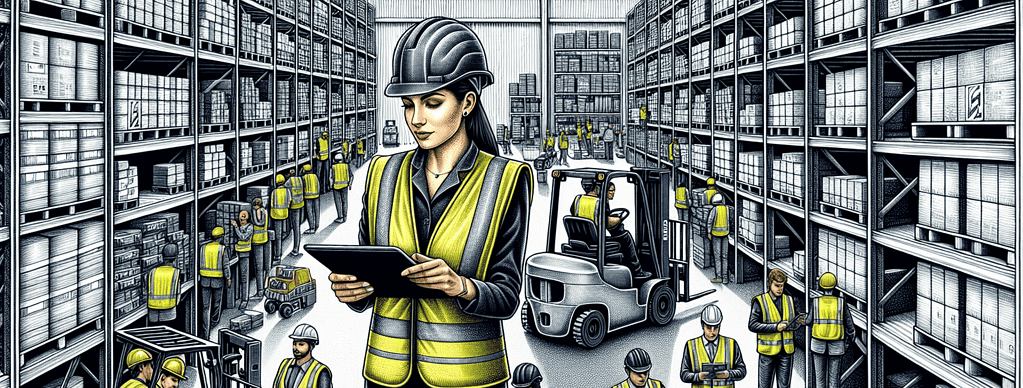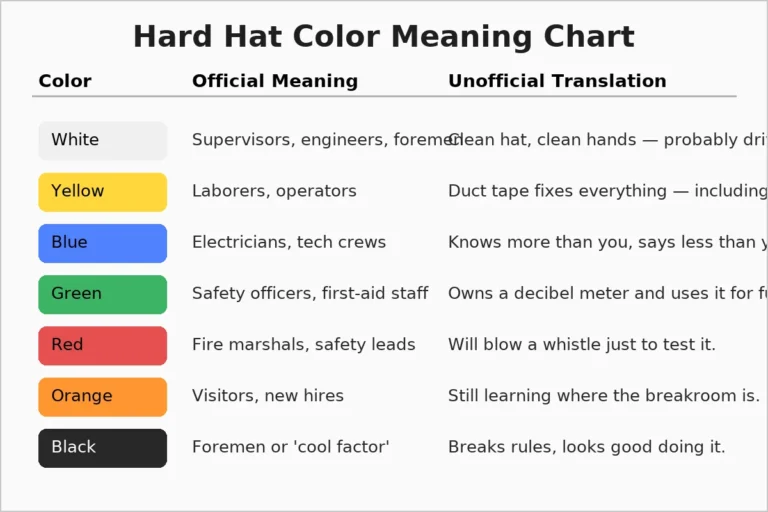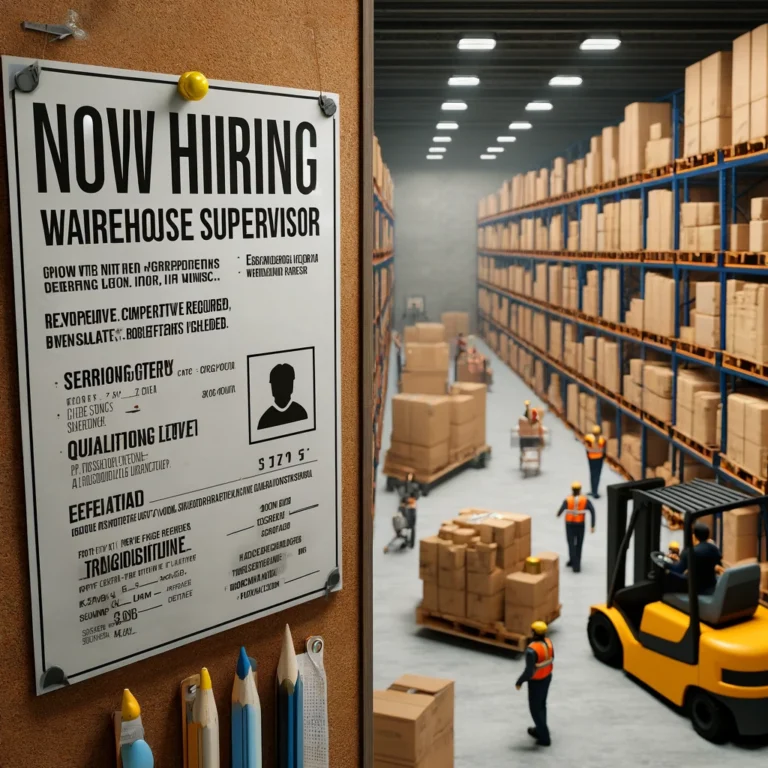Successful Manager Warehouse: Essential Skills You Must Have in 2026
Navigating warehouse management is complex. It requires a skilled manager. They need a balance of leadership and operational knowledge.

Understand the needed skills. Learn about the typical roles and get insider tips for advancing. Read it all in our guide. A manager’s warehouse is crucial to supply chain optimization. It ensures efficient operations and the smooth flow of goods.
Key Takeaways
Warehouse managers are vital in ensuring effective operations. Their multifaceted role encompasses inventory control, safety management, administrative tasks, and team leadership.
To succeed in warehouse management, you need a mix of supply chain or logistics education. You also need progressive work experience and a broad set of skills. These skills include technical skills, leadership, and effective communication.
Modern warehouses rely on integrating technology like WMS and automation. They also rely on understanding KPIs. But, they also rely on fostering a positive work culture and optimal team performance.
Exploring the Manager Warehouse Role
When picturing a warehouse, what comes to mind? It’s bustling. It’s teeming with activity. We receive, store, and ship goods. At the heart of this beehive activity is the warehouse manager. They orchestrate the roles of these operations managers. These roles include:
Maintaining accurate records
Managing inventory control
Overseeing budgets to ensure cost-effectiveness
Communicating regularly with the employee manager’s role is as diverse as essential.
The warehouse manager is responsible for:
Leading the warehouse staff in maintaining a safe and compliant work environment
Ensuring compliance with health and safety regulations
Understanding the operational side of things, including supply chain operations
Managing a team effectively
Acting as a leader, manager, administrator, and team player
This role requires many skills. You must handle a multitude of tasks.
Quick Story: My career vision has always included running my own business. When I finally earned the responsibility, it was one of the greatest positions I’ve ever had in a warehouse environment – with one exception. Anything and everything that goes wrong is your responsibility. Anything and everything that goes right is your team’s accomplishment. That’s just the way it works.
Early in my engineering career, the warehouse fire alarm disrupted our day. I was in a leadership meeting with the operations team, and I was curious and almost excited to see some ‘action’ in the warehouse. One of the operations managers jumped up and left the meeting to determine what was going wrong. I excitedly followed.
You become interested when the fire alarm sounds at your workplace. But, when you are the warehouse manager and the fire alarm sounds, you immediately wonder if you are working your last day. What did you miss that created a building-wide emergency? You have 10 minutes to find out and start making calls before someone gets on a plane.
Defining the Warehouse Manager Job Description
The role of a warehouse manager encompasses all responsibilities. Here are the main ones in order of importance:
Safety: Keep everyone safe by building and living a safety culture. Ensure everyone in the operation knows that their life is your top priority.
Morale: The emotions and feelings of your team will translate into their beliefs. And their beliefs will determine their actions. You must create a positive environment. It should be full of gratitude from associates and managers in all you do. Smile, laugh, cheer, and be honest with your words.
Customer Service: A happy workforce leads to happy customers. You cannot deliver the quality your customers expect in a warehouse managed by fear. Accountability is a necessary evil. But, inspiring a shared vision from the customer’s view will have everyone doing the right things for the right reasons.
Deliverables: You must meet all expectations. This keeps your boss and your company pleased with your ability to deliver in the future.
Knowledge: Robust comprehension of all facets of the warehouse environment, including logistics operations.
Essential Skills for Effective Warehouse Management

What distinguishes an outstanding warehouse manager from the rest? What competencies do these exceptional individuals possess? Leadership abilities are paramount. A warehouse manager must:
Lead their team effectively
Arrange and plan work schedules
Inspire and educate their colleagues
Manage time with efficiency
Such a role involves being proactive. It means setting the workflow rhythm and guiding the operations with positivity.
Leadership is only one aspect of a successful manager. Also important are technical skills for software used in managing warehouses. Managers need analytical thinking to improve efficiencies in those processes.
Technological advancements lead industry practices. Managers who excel in this area become invaluable.
Hard and soft skills are critical for any warehouse manager. They include proficient communication and sound decision-making. These skills help in problem-solving and ensure thoroughness in operations.
An exemplary warehouse manager is a mix of authoritative guidance and tech-savvy management. They also need people skills. They must focus on efficiency. They do this through analytics to improve warehouse processes.
The Path to Becoming an Operations Manager

Rising to the manager role in warehouse operations takes more than gaining expertise and knowledge. It also requires effectively showing them.
These candidates must make their mark and prove they’ve got the needed skills to take command well. Moving up in this field shows the ability to navigate through these roles, growth, and the ability to lead well in a warehouse.
Education and Training Milestones
To start a career as a warehouse manager, you usually need to finish high school. Nevertheless, employers often prefer an associate bachelor’s or bachelor’s degree in logistics.
Higher education degrees, such as those in Business Administration, Supply Chain Management, Logistics, Industrial Engineering, or Operations Management, are important. They teach essential skills for managing inventory well and understanding procurement.
Prospective warehouse managers might also consider improving their qualifications. They can do this by specializing in areas such as:
Business Analytics
Occupational Safety
Human Resources Management
Information Systems
Having a forklift license is a big advantage. It lets you manage heavy machinery well. This skill can be useful for these jobs. In the end, more training and relevant knowledge will prepare you. They will prepare you to handle many parts of warehouse operations well. (You would be surprised how much credibility you can gain by operating MHE at least once a year.)
Climbing the Ranks: From Entry-Level to Manager
People ascend through the ranks to become warehouse operations managers. It typically starts with basic roles in warehousing. It involves accumulating essential experience in warehousing and showcasing your leadership capacity. This can be accomplished via diverse pathways such as:
Participating in apprenticeship programs
Engaging in internships
Taking on paid positions like shift work
Contributing through volunteer opportunities
For those who lack a formal degree, it is vital to excel at using Warehouse Management Systems. They must also build professional relationships and understand critical performance metrics. After any verification, you can use your expertise fully in this realm.
Career progression isn’t just about moving up. It’s also about improving skills. Students should focus on several areas. They aim to become warehouse operations managers.
Sharpening their skills in leading teams and managing people
Accumulating practical operational knowledge
Continually seeking knowledge enhancement
Doing so shows your skill at leading people and warehouse work well.
Becoming good at navigating warehouse management is key. There are many aspects to it. They are key to excelling as an operations manager. These facets include building strong management skills. They are for operations, not just tactics. They set one apart by leading people and doing tasks.
Navigating Warehouse Processes and Systems

Understanding warehouse processes and systems can be as complex as navigating a maze. It’s complex. It has many moving parts. You need to understand the big picture. Some key processes that warehouse managers need to navigate include:
Receiving and Put-away
Storage and Replenishment
Picking and Packing
Shipping and Transportation
Let’s not forget the challenges of managing warehouse stock. You must know when to order it and where to put it. You must also ensure it’s in every relevant order and keep inventory accurate. The latter is crucial. It optimizes stock levels and ensures the warehouse can meet demand. It does so without overstocking or stockouts.
Warehouse management has key parts: inbound, storage, and outbound processes. The warehouse manager oversees them. Warehouse Control Systems (WCS) are crucial for monitoring inventory flow and ensuring that material handling equipment operates properly.
Warehouse managers must understand logistics and supply chain operations to ensure smooth operations. They must also be aware of safety rules and racking systems. While the job is complex, mastering it can be quite rewarding.
Implementing Warehouse Operations Systems
Setting up warehouse systems is a key part of a warehouse manager’s big effect on distribution, especially in distribution center management. This undertaking encompasses several stages, including:
Setting objectives
Selecting an appropriate system
Coordinating set-up plans
Systematizing data
Educating personnel
Evaluating the system through tests
Ongoing enhancements
Choosing the right Warehouse Management System (WMS) is vital. It’s vital to meet specific needs in warehouse management. This will improve inventory visibility. It will also boost workforce productivity and order processing. This will streamline overall warehouse operations.
Despite this, WMS deployment has various challenges. These include a reluctance to adopt new processes, ensuring accurate data capture at all levels, integrating with other platforms used within the organization, and sometimes needing bespoke modifications. Crafting and imparting effective staff training programs can also prove demanding.
We craft precise plans and gather team input to overcome obstacles. We must set manageable rollout expectations, develop incremental implementation strategies, prioritize education initiatives, and encourage open dialogue and ongoing appraisal to seek progress.
Warehouse managers must keep detailed records of stock levels and outbound shipments. This is vital for efficient warehouse management.
Technology for Inventory and Employee Management
Another key duty of a house manager is using technology. They’ve used it. They have a vast inventory and manage warehouse staff.
Automated software solutions reduce the need for manual data input, freeing employees to focus on more urgent operational duties. WMS uses mobile devices and scanning technology like barcodes or RFID. They provide instant updates and improve workflow.
Among these technologies, automated storage and retrieval systems stand out. They’re a prime example of how inventory management can be greatly improved, and they show their importance in modern warehousing.
To make the most of these advances, a warehouse manager must be good at running a warehouse and understand technology well. They have deep knowledge of inventory control and WMS applications and understand the details of automated storage and retrieval systems.
Proficiency in tech lets a manager here fine-tune operations and manage inventory well. It also boosts staff productivity.
Hiring the Right Warehouse Manager for Your Company

Hiring a skilled warehouse manager is vital. They can greatly boost a warehouse’s effectiveness and output. The ideal candidate for the job would be an expert in supply chain management. They would also have strengths in organization, process improvement, and leadership.
It’s important to see how well prospective managers have handled complex inventory systems and logistics. This was within the tough setting of a warehouse. We should emphasize that their team leadership skills are critical.
Looking at past work experiences, we can glean insights about their skill in guiding operations to be more efficient. Technical know-how and past achievements are just part of the equation when hiring.
Applicants who encourage teamwork fit in better. They assimilate more easily into the company’s culture. Suppose they demonstrate flexibility by embracing innovative technologies and workflows.
In that case, this suggests good job prospects with potential advancement within the firm. The blend hinges on having the right experience and being culturally aligned and adaptable. These are key when selecting a warehouse manager.
Selecting a warehouse manager goes beyond simple qualification checks. It demands an in-depth candidate’s expertise and past experiences. Prospective managers must possess extensive knowledge about various aspects of the operation, including:
The inner workings of a warehouse
Technological applications
Systematic support structures
Processes enhancements
Personnel leadership
Testing warehouse supervisors could be useful. It would measure how well a candidate can handle daily tasks. These tasks are related to managing inventory and general warehouse operations. They can also evaluate a candidate’s broad skills. These are for doing essential functions.
These evaluations are valuable tools. They test decision-making and flexibility under pressure. They show how well an applicant could react to realistic warehouse situations.
When interviewing potential hires, you must determine how quickly they can use the organization’s systems. These systems manage the warehousing environment.
Conducting structured interviews helps. They are full of behavioral questions. They help us understand candidates’ teamwork, communication, and problem-solving.
Ensuring Cultural Fit and Adaptability
When hiring a warehouse manager, focus on more than just their technical qualifications and experience. Also, consider how well they fit the company’s culture and their ability to adapt.
During interviews, it’s key to see if the manager’s values match yours. This can be as important as reviewing their skills. Their work ethics and approaches should match the current atmosphere at your warehouse. This match is key for evaluating cultural fit.
Ensuring job applicants fit your company culture should be a key part of each hiring stage. It starts with crafting the job description. Then, it means conducting evaluations and hosting interviews. The candidate isn’t capable of managing operations.
They are someone who fits into your company ethos seamlessly. They are also agile enough to adapt to changes in this dynamic field.
Optimizing Warehouse Team Performance

An effective warehouse manager understands that optimizing the team is essential.
Ongoing skills enhancement
Quick resolution of problems to improve operational efficiency
We will implement incentives for crucial tasks like picking and packing. They will raise team productivity a lot.
Recognizing and rewarding top performers as a form of motivation
It creates a work environment that promotes employee engagement. It does this through competitions and events. It also boosts productivity by creating an engaging atmosphere.
Another key aspect is cross-training warehouse staff. It ensures smooth operations when employees are absent. It helps avoid over-specialization pitfalls by enabling productivity gains. Ultimately, the goal is to ensure the team operates at its best. This will lead to a more efficient warehouse.
Training Employees for Peak Efficiency

Ongoing education for optimal warehouse team productivity is a continuous endeavor that includes:
We will start structured induction and regular training initiatives. They will confirm that all staff are ready and able to handle production needs.
We aim to cultivate a unified work atmosphere. It should foster an open mind. It should foster working together. And it should blend theory and practice.
Enhancement of effective teamwork and open communication among warehouse personnel.
Engaging with input from the warehouse employees can improve procedures. It can also boost teamwork and dialog.
Supervisors conduct the training, which involves interactive participation and clear guidance sharing. This training helps nurture employee advancement and dynamic output.
You must do routine evaluations. You must also recognize good performance. This is vital to keep high standards in the workforce.
Using skills assessments, which include group tasks or simulated customer interactions, is key. They’re vital for developing interpersonal abilities in training.
The focus is to refine team skills. This is to ensure top performance for everyone involved.
Building a Cohesive Team Environment

A vital duty of a warehouse manager is to ensure the development of a unified team atmosphere. Stand-up meetings boost warehouse efficiency and ensure continuous operations. They also reinforce unity among staff.
These gatherings let each team member state their opinions. They also allow them to share their progress and address their concerns.
These sessions encourage clear communication in the workforce, boost morale, and nurture feelings of fellowship and solidarity among the team.
Tools and Resources for Warehouse Management
In the digital era, warehouse management now needs modern tools and resources. They are indispensable. Essential tools for managing a warehouse include:
Warehouse Management Systems (WMS) are crucial. They handle basic functions like inventory management and order distribution. They also offer advanced features. These include yard management, voice picking, and real-time inventory tracking.
These applications provide a complete solution. They meet all needs in a warehouse.
Specialized systems focus on distinct elements of managing a warehouse.
WMS providers are diverse, each with its specialty. There’s always a good option for any warehousing need.
Key Performance Indicators (KPIs) are vital for warehouse managers. They help assess operations and find ways to improve.
Automation has been key in cutting errors. It helps in many operations, such as order processing and item retrieval. Implementing a Warehouse Management System requires careful attention to key stages.
Initial preparation
Selecting an adept team
Overseeing budget considerations
Providing comprehensive training to employees
Platforms, such as Extensiv Warehouse Manager, help a lot. They optimize many processes in a successful warehouse.
Leveraging the latest technological breakthroughs is key to efficiency and productivity. This is true within inventory control and, thus, in broader areas.
Compensation and Benefits of a Warehouse Manager

The role of warehouse manager comes with attractive financial compensation and perks. On average, in the U.S., a Warehouse Manager earns around $95,000 per year.
However, this can vary from $81,991 to $112,758. It depends on location, experience, and education level.
In addition to their regular pay, warehouse managers may also receive extra rewards, such as bonuses and incentives. The job is not just well-paid; it also aids personal growth and brings high work satisfaction for field managers.
Good pay and benefits are crucial for keeping employees. They ensure warehouse managers stay motivated and committed.
Summary
Are you a new warehouse manager or an employer looking to hire? We hope our guide has shown the details of the role and its great worth in the logistics and supply chain industry.
Frequently Asked Questions
What are the key responsibilities of a warehouse manager?
A warehouse manager supervises operations. They handle inventory and keep records. They also manage budgets.
What qualifications are necessary for a warehouse manager?
Securing a position as a warehouse manager typically requires possession of a high school diploma at minimum. Employers often prefer candidates for this role to have an associate’s or bachelor’s degree in logistics. These degrees are from a college.
Employers want to fill manager positions. They want experience in warehouse operations.
How can warehouse operations be optimized?
Deploying warehouse operations systems can improve efficiency and productivity. These systems should integrate technology that effectively manages inventory and staff. Continuously train your team. Also, use incentive programs. These things can lead to optimized warehouse performance.
What are the benefits of hiring the right warehouse manager?
Hiring the right warehouse manager is key. They’ve improved efficiency and productivity by managing inventory. They led a skilled team and set up optimized warehouse procedures.
What is the average salary of a warehouse manager?
The average warehouse manager in the United States earns around $96,006 annually. However, this pay can change. It depends on experience, education, and the warehouse’s location.






